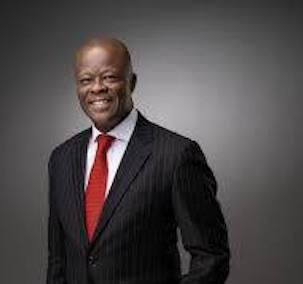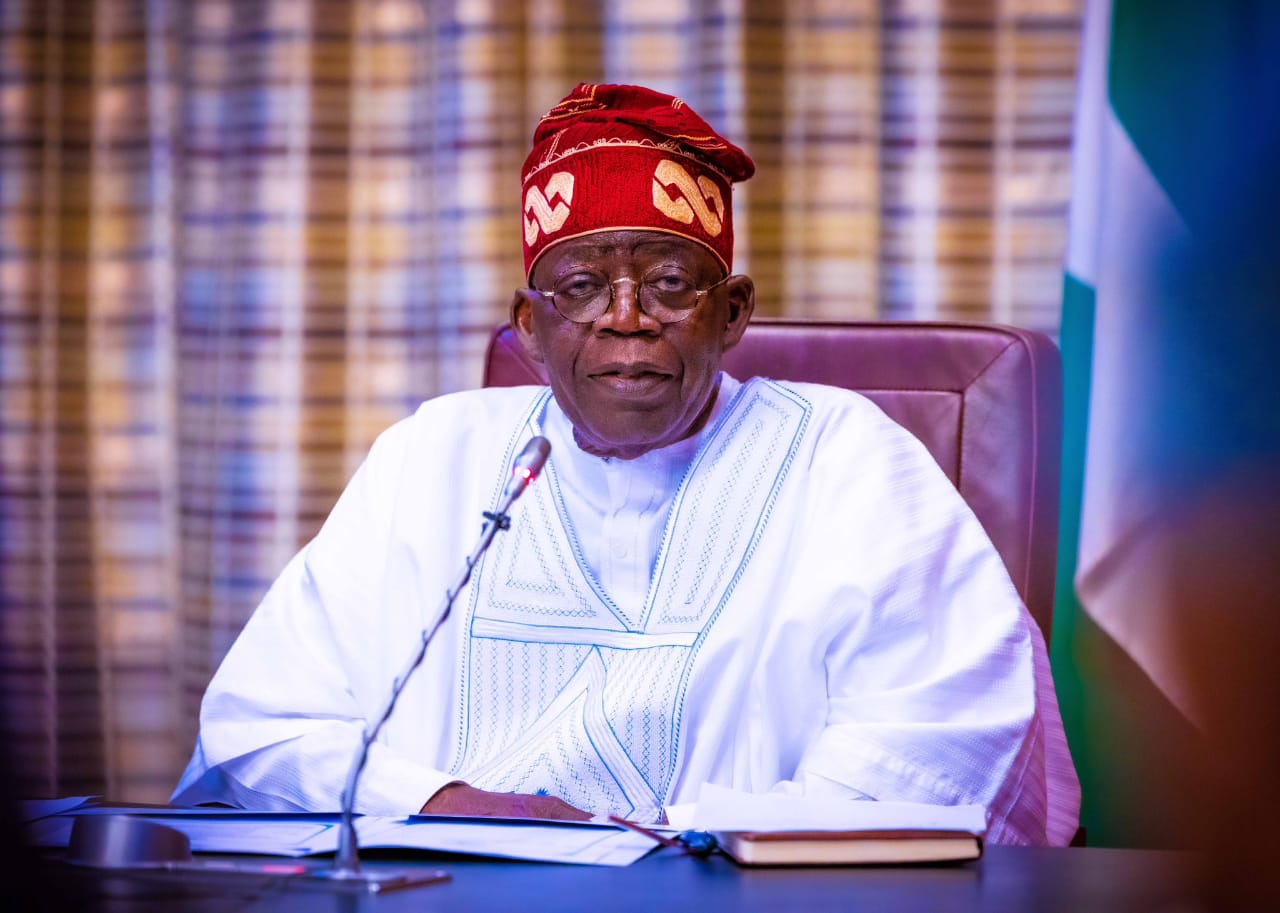COVER
Tension in CAC as Registrar General, Workers Tango

By Prosper Okoye, Abuja
Amidst rising level of unemployment in the country, at least 200 staff of the Corporate Affairs Commission (CAC) may have resigned their appointments in the last three years ahead of due retirement dates to escape possible dismissal, alleged high handedness and other harsh policies of the Commission under the leadership of Alhaji Garba Abubakar, the Registrar General and Chief Executive.
DAILY ASSET investigations revealed that since assumption of office in January 2020, Abubakar, who was hitherto a staff before his appointment has governed the frontline agency with an iron fist leading to mass resignation of the staff out of frustration.
Others were actually forced to resign due to the administrative measures taken by management, investigations revealed.“Due to high handedness, vindictive leadership style and gross incompetence, staff have been resigning from the Commission in droves” a source familiar with the situation maintained.
Obviously embarrassed by the mass resignations, the Registrar General had in June 2021 allegedly issued a circular to staff warning that the Commission would with hold for one year, the terminal benefits of any staff who voluntarily resigned.
As the resignations still continued unabated, Registrar General was said to have issued yet another circular on October 4, 2021, with the title “Notification of Exit from Service” in which he said the Commission would put on hold terminal benefits of staff to dissuade more workers from leaving.
The mass resignations was said to have shrunk the Commission’s workforce to a paltry 1,300 spread across 36 states of the Federation, where it has state offices and the Abuja headquarters.
Abubakar was said to have capitalised on the absence of a governing Board for nearly three years to operate the Commission’s activities on his whims and discretions and in some cases with impunity, it was alleged.
Investigations revealed that in order to pave way for his seemingly dictatorial style of leadership, the Registrar General unilaterally dissolved the staff Union- Amalgamated Union of Public Corporations, Civil Service Technical and Recreational Employees (AUPCTRE), soon on assumption of office.
In its place, he was said to have inspired the formation of a parallel workers union- Senior Staff Association of Statutory Corporations and Government Ownes Companies (SSASGOC) with an Executive Committee loyal to his management team, a source told DAILY ASSET.
And in order to wade off any opposition to the decision, Abubakar is alleged to have placed about 30 executive members of the Union(AUPCTRE) and other staff perceived as antagonistic to his policies on “punitive transfers” to 30 states of the federation, where the Commission has branch offices.
The transfers were said to have been carried out without recourse to staff needs or expertise required in the state offices.
Although the Commission was said to have expended about N50 million to settle transfer allowances for the affected the staff, the expenditure was heavily criticised as some staff considered it inappropriate in the circumstances of the Commission.
After the staff were successfully redeployed, the Registrar General was said to have directed that none of the transferred staff be allowed to proceed on annual leave, bereavement, casual or sick vacation, all in the bid to prevent any form of regrouping by the unionists.
“It is bare faced punishment” one of the affected staff, who didn’t want his name in print, told DAILY ASSET.
The obviously dissatisfied union leaders, had challenged the Commission’s decision to proscribe AUPCTRE in Court and actually obtained judgment.
However, the Registrar General himself a Lawyer was said to have declined compliance with the judgment of Court and instead proceeded to the Court of Appeal, where the matter was said to have been abandoned.
In another alleged act of impunity, a Deputy Director and Head, Department of Department (names withheld) was transferred on the orders of the Chief Executive to Enugu zonal office, barely a week after his assumption of office.
The said staff was subsequently accused of corrupt practices and suspended for six months from office without any evidence neither was due process followed.
It was learnt that the staff had challenged his suspension in Court and obtained favourable judgment at the National Industrial Court and the Commission was ordered to pay all his entitlements and a compensation of N2million.
Rather than comply with the Court Order, the CAC Chief Executive allegedly ordered another “punitive” transfer of the staff to Jalingo office and subsequently appealed against the judgment. However, a source said the Matter too might have been abandoned at the Appeal Court since the trial Court turned down the Commission’s application for stay of execution.
Also, exploiting the absence of a governing Board, the Registrar General is alleged to have unilaterally recruited two Directors (Human Resources and Finance and Accounts) in 2020 even when there was no budgetary allocation for such high level manpower.
In another instance, a Deputy Director, who had passed all prescribed examinations and adjudged competent to be promoted to the next rank of Director of ICT was blatantly told by the Commission’s boss that he would not be promoted. No reasons were advanced for this supposed victimisation, it was also learnt.
The alleged impunity of the Registrar General was capped by the recent suspension of Chairman of the proscribed AUPCTRE Chairman, a Principal Manager on GL14, whose suspension according to the Commission’s rules could only be approved by a governing Board.
Abubakar was also accused of “modern slavery” with the circular of December 25, 2021 in which he directed staff of the Commission not to use mobile phones while on duty.
“By the force of the said circular, staff were mandated to switch off their mobile phones and keep in a designated box until close of work effective January 2022”, a staff said of the situation.
The staff said the “disrespect of staff” and “violation of their rights” had been extended to Directors who reduced to personal staff of the Chief Executive in the daily operations of the Commission.
DAILY sought the response of the Registrar General through a letter dated June 20, to the RG seeking his comments on the specific allegations against him.
The letter was duly acknowledged on June 21, but there was no response from the Commission at the time of this report.
COVER
Nigeria’s Capital Market Key to Achieving $1trn Economy – FG

By Tony Obiechina, Abuja
Minister of Finance and Coordinating Minister of the Economy Wale Edun has emphasized the crucial role of the capital market in achieving the nation’s ambitious goal of becoming a $1 trillion economy.Edun, who spoke at the Capital Market Committee (CMC) meeting, was represented by Minister of State for Finance; Dr.
Doris Uzoka-Anite highlighted the market’s transformation since 2015, with improvements in governance structures, new products and platforms, stronger regulatory environment, and growing investor participation. According to the Minister, the Implementation of the Capital Market Master Plan (2015-2025), has been instrumental in increasing the market’s contribution to the national economy, developing a sophisticated market structure, and improving competitiveness.Edun said the revised plan prioritizes digitalization, innovation, sustainability, inclusion, and capital formation, aligning with the broader economic reform agenda.He said the passage of the new act modernizes the legal and regulatory framework, streamlines enforcement mechanisms, and provides clarity on emerging areas such as digital assets and crowdfunding.On the challenges and opportunities inherent in the Act, the Minister said, it will help deepen market participation, as well as ensure regulatory coordination remains tight.On the government’s private sector innovation in creating the needed environment for businesses to thrive, the Minister noted that the government is committed to creating an enabling environment for private sector innovation to flourish within a fair and transparent environment.The Minister added that the market is expected to contribute to the economy, serving not only for capital raising but also as a vehicle for wealth creation, economic inclusion, and long-term national resilience.He explained that, with the Securities and Exchange Commission undertaking regulatory reforms, including joining the GBMC Network of IOSCO in promoting and implementing ISSB Standards amongst others, the domestic economy has recorded the fastest GDP growth in about a decade in 2024, driven by a strong fourth quarter and improved fiscal position.Earlier in his speech, the DG SEC, Dr. Emomotimi Agama, emphasized the Commission’s commitment to regulatory reforms and capital market growth.According to him the enactment of the Investment and Securities Act (ISA) 2025 marks the beginning of a transformative new era for the capital market.Agama highlighted the Commission’s efforts to deepen engagement with stakeholders, ensure widespread dissemination and understanding of the new law, and drive innovation and compliance.He also emphasized the importance of restoring investor confidence, bringing timely relief to aggrieved investors, and creating a platform for broad-based participation of Nigerians in wealth creation.The SEC boss noted that the Commission has constituted an implementation team to thoroughly engage with every provision of the ISA 2025 and set up a dedicated sensitization team to deepen public understanding of the new law. A podcast series has also been launched to simplify the ISA 2025 and make it accessible to all Nigerians.Agama highlighted the Nigerian capital market’s impressive performance in 2024, with the NGX All-Share Index increasing by 37.65% and market capitalization growing by 53.39%. He also noted the Commission’s efforts to enhance regulatory efficiency, promote market integrity, and protect investors.The SEC boss emphasized the importance of financial inclusion and investor education, citing the Commission’s initiatives to empower women, youth, and grassroots communities. He also highlighted the Commission’s commitment to technology-driven solutions, including the launch of an e-survey to assess emerging technology adoption in the Nigerian capital market.Agama concluded by emphasizing the Commission’s commitment to fostering growth, transparency, and sustainability in the capital market, and looking forward to fruitful deliberations at the meeting.The highlight of the CMC meeting was the unveiling of the ISA Act 2025 by the minister.COVER
FG Boosts Internet Access, Rolls out $2bn Fibre Network

By David Torough, Abuja
The Presidency on Monday said Nigeria’s Communications and Digital Economy sector attracted $191m in foreign direct investment in Q1 2024, a nine fold increase from $22m in Q1 2023.The Minister of Communications, Innovation and Digital Economy, Bosun Tijani disclosed this during an interview for an upcoming State House documentary marking President Tinubu’s second anniversary.
Special Adviser on Information and Strategy to the President, Bayo Onanuga, revealed in a statement yesterday titled; “Investment in Digital Economy Grows Ninefold, Rollout Of $2 Bn Fibre Optic Infrastructure Begins Q4: Bosun Tijani. ”Tijani highlighted the sector’s robust workforce development, driven by the three Million Technical Talent programme and revealed plans for a $2bn initiative to deploy 90,000 kilometres of fibre optic infrastructure nationwide, starting in Q4 2025.“These foundational reforms, coupled with advancements in artificial intelligence and the startup ecosystem, have positioned Nigeria as a global leader in the digital economy,” Tijani stated.Comparing FDI inflows, he said, “In Q1 2023, the sector had about $22m; by Q1 2024, with this administration well underway, we reached $191m. The trend continued in Q2, increasing from $25m in 2023 to $114 m in 2024.”According to the minister, the 3MTT programme, launched in October 2023 to create a tech-savvy workforce, has already trained over 117,000 Nigerians in digital skills, surpassing its initial target of 30,000.“By last year, we had already moved that to over 117,000. With an additional 35,000 in training, the programme is nearing 10% of its 3 m goal. And in the rest of the time in office, we hope to reach three million,” he said.Regarding connectivity, Tijani announced that Project Bridge, focused on deploying 90,000 kilometres of fibre optic cable, will commence in the fourth quarter.“We are preparing a $2bn investment to ensure every Nigerian can access affordable, high-quality connectivity regardless of location. Increasing connectivity hubs by just 10 per cent could yield a 2.5 per cent GDP growth,” he said.Tijani celebrated Nigeria’s ranking among the world’s top 60 countries for AI readiness and developing a homegrown large language model.He also highlighted the launch of the AI Collective platform, supported by leading partners including Pierre Omidyar, Google, and Microsoft, to foster collaboration and innovation in artificial intelligence.For the first time in the country, the ministry has funded 55 academic researchers to explore technology applications in agriculture, healthcare, and education. In addition, N300m was invested in 10 startups using AI and blockchain to enhance agricultural productivity.On the Nigeria Startup House in San Francisco, an initiative targeting $5 billion in startup funding, Tijani said, “Our goal is to attract $5 billion in investments for Nigerian startups, supported by the Startup Pact and Trade Desk initiatives, which will connect local tech firms to global opportunities and government procurement.”Tijani revealed that over 500 government technologists have been trained in AI and Digital Public Infrastructure, and the groundbreaking Digital Economy Bill has passed its first reading in the National Assembly.To bridge rural connectivity gaps, the Minister projected that 7,000 telecom towers would be deployed, targeting 98 per cent nationwide coverage, adding that the Federal Executive Council had already approved the project.He described the progress on Right-of-Way issues as a game-changer for the country, revealing that 12 states in the federation have adopted zero-rated Right-of-Way policies.According to him, these efforts will support the National Broadband Plan’s goal of achieving 90% penetration by 2025, up from 48% in 2024.He projected the sector’s GDP contribution to rise from 16 per cent to 22 per cent, stating, “If a sector can increase its contribution by three to four per cent to the GDP, we’re about to see the economic growth we’ve not seen before. Technology allows us to bridge the gap between governments and the people.”Tijani said the government is not chasing quick wins. “The results we want to provide for Nigeria are long-lasting reforms that will transform our economy for generations to come”.COVER
Abbas Recommends Israel, Brazil, Vietnam Revenue Diversification Models

By David Torough, Abuja
Speaker of the House of Representatives, Hon. Abass Tajudeen, has declared that Nigeria’s heavy dependence on oil revenue would continue to leave its economy vulnerable, noting that agriculture remained the most viable alternative to achieving resilience.
Abass made the declaration in Abuja on Monday at a one day public hearing on some Bills seeking the establishment of agricultural colleges and institutions. Represented by Chief Whip of the House, Hon. Ibrahim Isiaka, the Speaker said it was within this context that the establishment and expansion of Agricultural Research Institutions across the country are not only necessary but strategically urgent.He said Nigeria should “Emulate countries like Israel, Brazil, and Vietnam that have attained a significant leap in agro development by investing substantially in research and development.”According to him, Brazil’s Embrapa, for instance, reengineered an infertile savannah into a global food hub, just as Vietnam’s targeted agricultural reforms pulled vast populations out of poverty, while Israel continues to innovate in arid-zone agriculture through technology-driven methods.Chairman of the House Committee on Agricultural and Institutions, Hon. Isiaq Abiodun Akinlade, recalled how in the 60s and 70s, the country was among the major exporters of agricultural produce such as cocoa, cotton, palm oil, and groundnuts.The lawmaker noted that Nigeria, with a population size of over 220 million and still growing, is desirous of more agricultural colleges and research institutions to help proffer solutions to issues, “namely climate change, insecurity, pest outbreaks, soil degradation, unskilled labourers, and livestock management.”


























